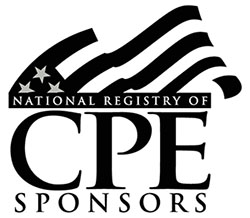
"Inside Utility Accounting" delves into the unique accounting challenges utility companies face.
Tailored for accounting professionals new to the industry and those whose jobs require an understanding of how the sector's accounting impacts the business, this program features subject matter experts leading instruction.
DAY ONE
Registration and continental breakfast open at 7:30 a.m.
Utility Accounting: The New Landscape
Overview of unique accounting challenges with regards to the Financial Accounting Standards Board (FASB) Accounting Standards Codification (ASC) 980: identifying specific guidance for regulated utility companies, explaining the relationship between the Federal Energy Regulatory Commission (FERC) and utility companies, unique disclosure requirements for utility companies, identifying financial statement accounts with specific aspects to the utility industry, and look at the differences between GAAP and FERC financial reporting requirements.
This session is designed to:
• Provide an overview of the regulatory process
• Discuss the general rate formula and its interaction with financial accounting
• Highlight areas where accounting and reporting issues exist specific to regulated utility companies
Revenue Sources
A discussion of the common customer classes and the common utility revenue sources at a utility company. In addition, the session will describe how revenues are calculated, identify factors that may affect revenues and review the key concepts of unbilled revenue, including:
• Customer classes
• Rate structures
• Process of developing rates
• Billing and meter reading
• Unbilled revenues
Power Plant Accounting
This session focus is on three key areas with regards to plant accounting: utility plant depreciation; capitalization concepts, allowance for funds used during construction (AFUDC) and the implications for deferred taxes.
• Depreciation methods: GAAP, Regulatory and Tax; including the impact on deferred income taxes
• Asset removal obligations
• Capitalization versus expensing and AFUDC
• Construction Work in Progress (CWIP)
• Impact of extending (or reducing) the service life of a power plant
Income Tax Accounting and Key Industry Issues
Regulated businesses face special income tax and tax accounting issues. During this session you will delve into several income tax and regulatory issues facing the utility industry. Such topics include income tax accounting, federal and state income tax matters and common permanent and temporary differences impacting regulated businesses. We will also discuss key industry issues, such as recently issued IRS guidance related to repairs.
• Income tax accounting for regulated businesses
• Common Schedule M differences between book and tax
• Key current industry issues (e.g., repairs and IRS examinations)
Day One concludes at approximately 5 p.m.
DAY TWO
Continental breakfast opens at 8:00 a.m.
Power Contracts As Leases
Analysis of how and when power purchase agreements are treated more as leases and the potential tax implications, including:
• Tolling arrangements
• Renewable energy PPA contracts
• Long-term fossil/gas/nuclear PPA contracts
• Alternatives to leasing and potential changes with proposed literature
ISO Markets, Operations and Settlements
Companies within Independent Transmission Systems (ISOs) and regional transmission organizations (RTOs) are required to maintain their books and records in accordance with the FERC’s Uniform System of Accounts (USofA). You’ll learn how market prices impact a company’s revenue stream and how your company can comply with the rules on accounting and financial issues related to the various transactions that occur within the ISOs/RTOs and how they differ from region to region, including:
• FERC Orders 888, 889, 890
• ISO/RTO structures
• Locational marginal pricing
• Multi-settlement systems
• Financial Transmission Rights (FTRs)/Congestion Revenue Rights (CRRs)
FASB/IFRS Convergence
The American Institute of Certified Public Accountants has recommended to the Securities and Exchange Commission (SEC) the adoption of International Financial Reporting Standards. Find out how the convergence of IFRS with U.S. Generally Accepted Accounting Principles (GAAP) will challenge utilities and what it will likely take to comply with the standards. Among the topics of discussion:
• Challenges to the balance sheet and income statement
a. Regulatory Assets and Liabilities â€" the big dollar impact
b. Asset removal obligations
c. Asset impairment
d. Fair value and income fluctuations
• Getting compliant
a. Build regulatory consensus
b. Component depreciation
Program ends at approximately 1 p.m.
This live group seminar is eligible for 8.5 CPE credits. Be aware that state boards of accountancy have final authority on the acceptance of individual courses for CPE credit. As of January 1, 2002, sponsored learning activities are measured by program length, with one 50-minute period equal to one CPE credit. One-half CPE credit increments (equal to 25 minutes) are permitted after the first credit has been earned in a given learning activity. You may want to verify that the state board from which your participants will be receiving credit accept one-half credits.


Accountants new to the utility sector. Managers, executives, analysts and associates with accounting fundamentals who need to understand the specifics relative to the utility sector. Professionals at utilities and merchant generators, plus regulatory affairs and corporate finance
Presumes that participants are familiar with basic corporate accounting principles.
Attendees leave SNL Energy training seminars with practical tools and greater insight into the power sector, delivered by professionals from within the power sector who have successfully faced the same challenges you face in areas that include rate cases, utility mergers and acquisitions,utilities accounting, credit analysis and valuation. Try us out, and learn why over 1,000 energy companies, commercial and investment banks, investment managers, regulators, and others trust SNL Energy to provide their professionals with market leading training and intelligence solutions.